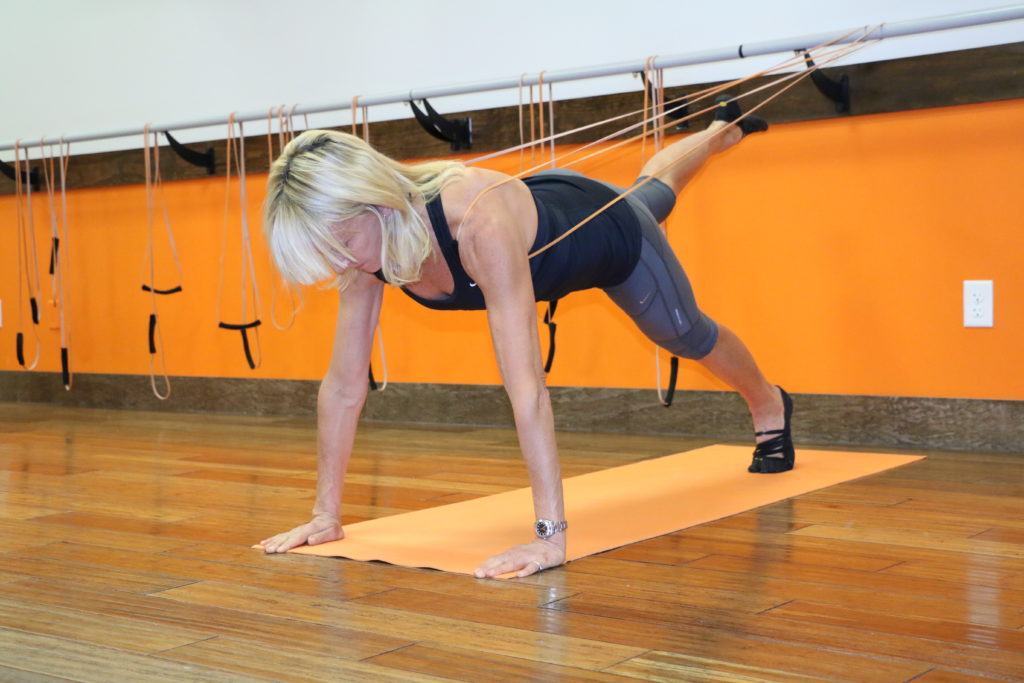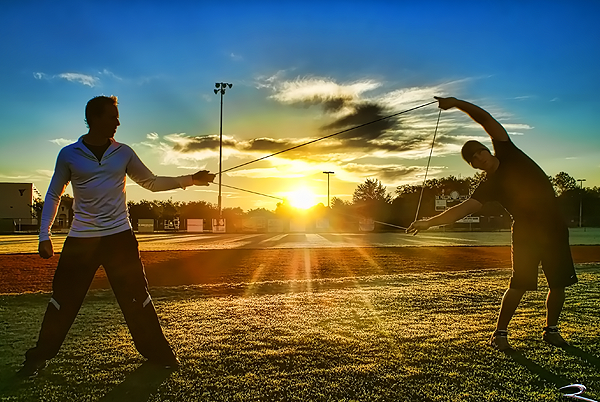During our series from Zach Parker, we have focused on the order and synchronicity of a proper golf swing. This set up is very important to accurately drive the ball, but what about speed? Sometimes while in the mindset of proper form and order, we slow the swing too much. This results in a lackluster […]
Author Archives: Jessica H. Maurer
It can be overwhelming to consider all of the elements required for an impact with a square clubface along with a clubhead path down the target line. We recommend reading our past blogs on this topic for additional guidance on body order and placement. Today, we want to share with you one more strategy for […]
One of the main goals of training for golf specific functionality is to create an effective and accurate swing. The more control you have over the swing itself, the more control you have over the golf ball. The more control over the ball, the lower your scores will be. The cleaner your mechanics are, the less […]
Last week, we introduced you to the proper sequence to “load to explode.” We need to move in an opposing direction in order to provide force to an action in the opposite direction. This is true in terms of right and left as well as up and down. To jump, you must bend the knees […]
To better your golf swing, you need a basic overview and understanding of anatomy and movement. In this blog, Zach Parker, one of the industry leaders in junior development, defines some of the basic terminologies as well as demonstrates an exercise that is sure to help you better understand the strength and the sequencing needed to […]
Here at SuperFlex Fitness, we want to help you become the best athlete you can. From blogs on group fitness to beginners and sports specific, we are here to educate, share, and promote athletic training. We have partnered with Zach Parker, one of the industry leaders in junior development. Zach currently is based at the […]
As we have established over the past three months, band training is quite effective for everyone and in multiple environments. They are simple to use, easy to add regressions or progressions to movements, and diverse in training style. However, we all make mistakes sometimes. Below are some common mistakes fitness professionals and fitness fanatics make […]
One of the most overlooked and underdeveloped aspects of a workout is the warm-up. Trainers and clients alike quickly skip through his section to get to the more “important” exercises. A proper warm-up can help improve performance as well as prevent injuries, which is why we should spend more time preparing the body for the […]
Today, let’s discuss 5 ways to train using resistance bands. One of the most publicized reasons for using resistance bands is the fact that it is versatile. However, when people give this reason, it is usually followed with exercises that can be replicated with dumbbells. There is so much more to resistance band training than […]
Resistance bands are great for any strength training or rehabilitation program. As we discussed in our blog, Band Training 101: 5 Reasons to Use a Resistance Band, band exercises can be functional, mimic sports-specific movement, and create better movers. When working out with a resistance band, people immediately anchor the band to or around themselves. […]
- 1
- 2










